![]()
Monday, January 9, 2017 | By Dr. Raz Zimmt
Originally published by the Meir Amit Intelligence and Terrorism Information Center.
Overview
Iranian newspapers recently published criticism of Russia and claimed its policies in Syria ignored vital Iranian interests. Iranian criticism of Russia is not new. Iran is deeply suspicious of Russia and its regional aspirations. However, the recent criticism in Tehran reflects growing Iranian suspicion, especially after Aleppo fell to the Syrian army forces and the ceasefire was brokered by Syria and Turkey without Iranian participation.
A series of newspaper articles published in Iran, especially since the fall of Aleppo, has noted that despite the cooperation between Iran and Russia in conducting the campaign in Syria, the interests of the two countries do not overlap. According to the articles, Turkey’s deep involvement in the Syrian crisis encouraged by Russia, and the invitation extended to Saudi Arabia to the talks in Astana (the capital of Kazakhstan), are liable to harm Iran’s regional status. One vital Iranian interest is the importance of Syrian participation in the “resistance axis” with Iran and Hezbollah. On the other hand, unlike Iran, Russia has diplomatic relations with Israel and its policy towards it differs from Iran’s.
During the past year, military cooperation between Iran and Russia increasedin Syria, to the point where, in August 2016, Russian fighter planes took off from Iran’s military airfield in Hamedan to attack targets in Syria. In the meantime, there is ongoing political coordination between senior Iranian and Russian officials regarding developments in Syria. In the last few weeks the Iranians have reiterated their bilateral cooperation in general and on the issue of Syria in particular. However, Iran has noted its reservations a number of times about Russian military and political actions taken without Iranian involvement, especially after Aleppo fell and the ceasefire went into effect.
In all probability, Iran and Russia’s common interests bind them strongly enough so that they will continue cooperating with one another in Syria. Their most pressing common concerns are to prevent Syria from falling into the hands of jihadist rebels or Islamists hostile to both Iran and Russia, and to prevent the West from gaining influence in Syria. Therefore, as long as the war in Syria continues unabated, Iranian-Russian military and political cooperation can be expected to continue, even if there is occasional friction. Nevertheless, the two states also have disagreements caused by both sides’ aspirations to influence or even hegemony in Syria, and by their different views of the relations between regional countries (including Israel). In all probability, their disagreements will worsen and rise to the surface as contacts continue for a political arrangement that will determine the fate of President Assad, whose continuing as head of Syria is regarded by Iran as of supreme importance.
Appendix A
Recent Critical Commentary in Iranian Newspapers about Russian Intentions in Syria
Once Aleppo had fallen to the Assad forces and Russia and Turkey jointly brokered a ceasefire, a series of editorials and op-ed articles appeared in Iranian newspapers criticizing Russian policy in Syria. They wondered how far Russia’s motives could be trustedand stressed Iran’s vital interests in Syria. Examples follow.
Commentary Published by the Conservative Daily Jam-e Jam
On January 2, 2017, the conservative paper Jam-e Jam printed an op-ed article about Russian policy in the Middle East in general and Syria in particular:
- Political commentator Sadegh Maleki wrote that the fighting in Syria had shifted in favor of Syria and its allies in the last year after Russia entered the arena. However, Russia’s long-term activities, carried out in opposition to Iran’s national interests, make its motives questionable, and he wondered how far Russia could be trusted.
- According to Maleki, Russia reentered the Middle East for reasons different from those motivating Iran. Russia, he wrote, operates based on international considerations, and despite its presence in Syria, its view of the “resistance front” is tactical and short-term rather than strategic, and is liable to change according to circumstances. Russia, he wrote, has relations with Turkey and Israel, and considers its relations with Saudi Arabia important. The invitation Russia extended to Saudi Arabia to attend the talks on the future of Syria held in Asanta, the capital of Kazakhstan, may shift the balance of power against Iran.
Commentary Published by the Pro-Reform Mardom Salari
On January 4, 2017, the pro-reform daily Mardom Salari published an op-ed article about Russian involvement in Syria.
- Iran’s presence, according to the article, is based on vital interests, among them the capability to transport material aid to Hezbollah in Lebanon and the desire to advance towards the Israeli border. Russia, on the other hand, has diplomatic relations with Israel and its policies in that regard differ from Iran’s.
- Russian and Iranian cooperation in Syria in the fight against terrorism is productive. Russia provides aerial support while Iran advises the Syrian army forces. Without Iran, Russia’s aerial activity would be impossible, and without Iran, there would be no military victories in Syria. Therefore bilateral cooperation is both vital and desirable. There is bilateral cooperation in other fields as well, among them the economy, trade, nuclear energy, and Iran also buys Russian weapons systems.
- Nevertheless, there is no way to promise that bilateral interests will continue. Since the Syrian issue is vital for Iran, Iran has to make use of its political might and protect its national interests to maintain its well-deserved regional position, according to the article.
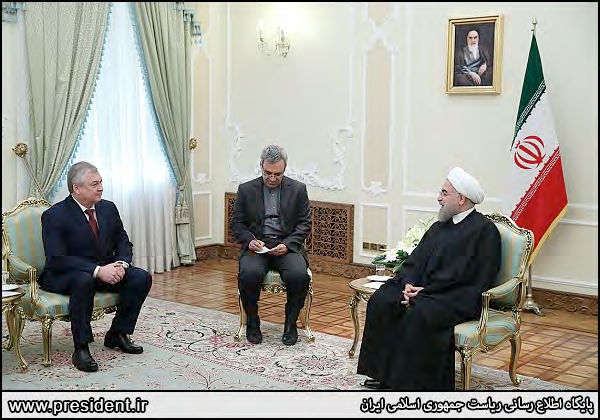
Iranian President Rouhani meets with Russian presidential envoy Alexander Lavrentiev (Website of President Rouhani, December 3, 2016)
Warning on the Tabnak Website
The Tabnak website, affiliated with former Islamic Revolutionary Guards Corps (IRGC) commander Mohsen Rezaei, warned of a clash of interests between Iran and Russia. On January 4, 2017, it posted an article stating that the increasing involvement of Turkey, encouraged by Moscow, in the Syrian crisis, endangered Iranian interests.
- According to the article, Turkey and Iran disagree over strategy, especially the future of President Assad. Turkey’s joining the Iranian-Russian axis was important because of its great influence in Syria, and therefore Turkey was welcomed by Iran and Russia. However, increased Turkish involvement may push Tehran aside and replace it. Since the trilateral Iranian-Turkish-Russian meeting was held in Moscow, Turkey has become more important at Iran’s expense, and is now Russia’s main partner in formulating the security agenda in Syria. While the Kremlin claimed that Iran did in fact influence brokering the ceasefire in Syria, Iran had no operational involvement in enforcing it.[1] In addition, Russia supports Turkey’s military activities in northern Syria, which target the Kurds, not ISIS. At the end of the campaign Turkey’s standing may even improve in the balance of power in Syria.
- The article noted Turkey’s importance to Russia in protecting Russian interests in the Caucasus region and in its confrontation with NATO. Turkey is more important for Russia than is Iran, which is manifested by Moscow’s preference for coordinating with Ankara regarding Syria, rather than with Tehran. Recent developments in Syria proved, claimed Tabnak, that Russia regarded its cooperation with Turkey as very important, which could endanger Iran’s interests after five years of activity in Syria.
- The article warned that if Iran could not secure its important interests in Syria, it could find itself having to make significant concessions. Ali-Akbar Velayati, advisor to the Iranian supreme leader for international affairs, recently noted that Iran could not stop supporting the resistance front in Syria, which might indicate that he also had concerns about changes in the situation in Syria that could work against Iran. Velayati might, claimed the article, be issuing a warning to both Russia and Turkey.
Qasem Mohebali Interviewed by the ILNA News Agency
The interview of Qasem Mohebali, former director-general of political affairs of the Middle East in Iran’s foreign ministry, with the ILNA news agency on January 4, 2017, also reflected Iranian concerns about Russia’s intentions. He said that Iran had three main objectives in Syria: to fight terrorism, to preserve Syria’s territorial integrity and to support the “resistance front.”Russia and Turkey agreed with Iran regarding the fight against terrorism and shared its opposition to dividing Syria and establishing a Kurdish state in northern Syria, but don’t share Iran’s view concerning the continuation of the activity of the “resistance front.” He advised the Iranian government to expand its contacts regarding Syria to other regional and international powers, such as Germany, the United States, France and Britain, and not to settle for contacts exclusively with Russia.
Appendix B
Iran and Russia in the Syrian Arena: Close Cooperation and Disagreements
During the past year Iranian-Russian cooperation increased, especially regarding the ongoing campaign in Syria, to the point where in August 2016 Russian planes took off from the Iranian military airbase in Hamedan to attack targets in Syria. The Russian use of the airbase was suspended temporarily because of internal Iranian criticism of allowing a foreign army to use Iranian military bases, but senior Iranian officials have already announced that Iran may allow the Russians to use the base again, depending on operational needs.
In the meantime, Iran and Russia coordinate continually, at the senior and operational levels, on developments in Syria. In December 2016 the presidents of Russia and Iran held four telephone conversations to discuss bilateral regional cooperation in Syria in the wake of the fall of Aleppo. On December 20, 2016, the foreign ministers of Iran, Russia and Turkey met to discuss the Syrian crisis. After the meeting they issued a joint statement stressing the support of their countries for the preservation of Syria’s independence, unity and territorial integrity. Ali Shamkhani, the secretary of the Supreme Council for National Security, said that Iran and Russia cooperated in Syria, both providing military guidance for the Syrian army and the resistance forces. He said Russia and Iran were allies in the war on terrorism, and cooperated at the highest levels, despite the efforts of enemies to mar their cooperation (Fars, December 20, 2016).
Ali-Akbar Velayati, advisor to the Iranian supreme leader for international affairs, recently said that Tehran and Moscow coordinated on developments in Syria. He gave a press conference in Tehran where a question was asked about how far Iran could rely on Russia to take Iran’s interests into consideration during the upcoming talks in Asanta about the future of Syria. Velayati said that the ties between Iran and Russia were friendly and strategic, and that they aided one another and coordinated over the crisis in Syria. However, he noted, Iran would not stop its support for the “resistance front” and denied a report that Hezbollah would leave Syria after the ceasefire. He said Hezbollah had sacrificed many of its fighters in the Syrian campaign and that Syria regarded Hezbollah, and its leader Hassan Nasrallah, as close friends (Tasnim, January 3, 2017).
Despite the fact that increased criticism of Russia is so far limited to commentators in the Iranian press, it reflects Tehran’s growing dissatisfaction with Russia’s conduct in the Syrian arena, especially in view of Turkey’s deepening involvement and Russia’s willingness to include Sunni states, especially Saudi Arabia, in talks about Syria’s future. At the end of December 2016, Sergey Lavrov, the Russian foreign minister, said his country was examining the possibility of including Sunni states, Saudi Arabia among them, in the talks in Asanta (TASS, December 29, 2016). He made the announcement despite Iran’s explicit objection to inviting Saudi Arabia to the talks. Hossein Dehqan, Iranian minister of defense, interviewed by Russian TV on December 27, 2017, said Iran objected to the participation of Saudi Arabia in the talks.
Iran also has reservations about the ceasefire formulated for Syria by Russia and Turkey. After it went into effect on December 30, 2016, Iran and Turkey blamed one another when it was violated. On January 4, 2017, Mevlüt Çavuşoğlu, the Turkish foreign minister, accused the Syrian regime and the Shi’ite militias of violating the ceasefire. He warned that ceasefire violations endangered the negotiations that were supposed to begin between the Syrian regime and the rebels two weeks hence. In response, Bahram Qasemi, spokesman for the Iranian foreign ministry, said Turkey had to take the steps necessary to restrain the armed groups violating the ceasefire and not blame sides responsible for the conflict (IRNA, January 4, 2017).
Note:
[1] On the other hand, some of the Iranian media noted Iran’s involvement as participating in the activities of the Iran-Russia-Turkey axis in the steps leading up to the ceasefire. For example, commentary in the daily reformist newspaper E’temaad ( January 1, 2017), claimed (exaggeratedly) that the meeting of the foreign ministers of Iran, Russia and Turkey was the foundation for the ceasefire.



 RSS
RSS

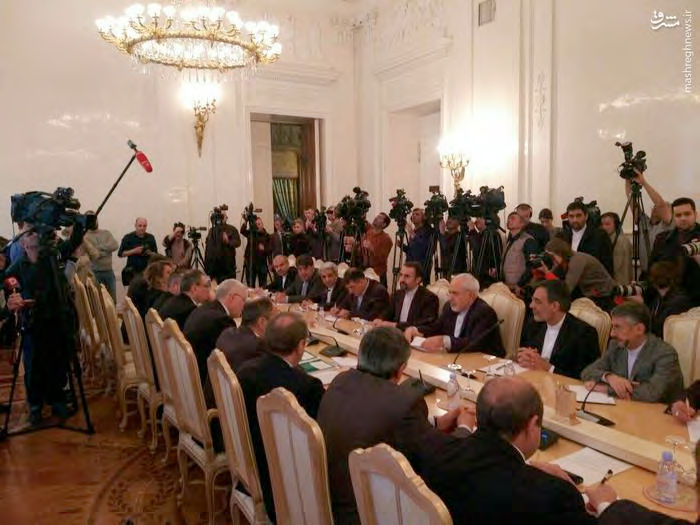
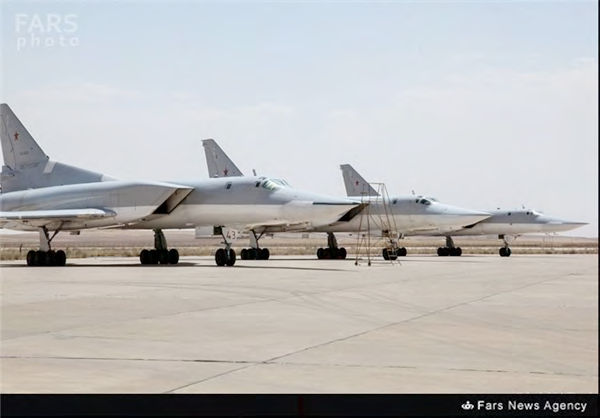
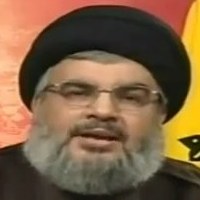
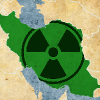


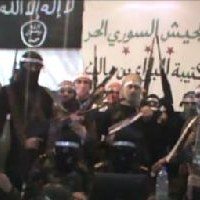




Latest Comments
Hello Mike, Thank you for your positive feedback to the article. I felt there wasn’t too much critical analysis of ...
Thanks for this considered and well constructed article. A follow up article on the manner in which the editorial contro...
THE CLUELESSNESS OF CLAIMING THAT OBAMA'S MIDDLE EAST POLICIES WERE A FAILURE CANNOT BE FURTHER FROM THE TRUTH, WHAT THE...
As long as Obama is the president of the usa do not trust the us government......
Thank you for an good read....